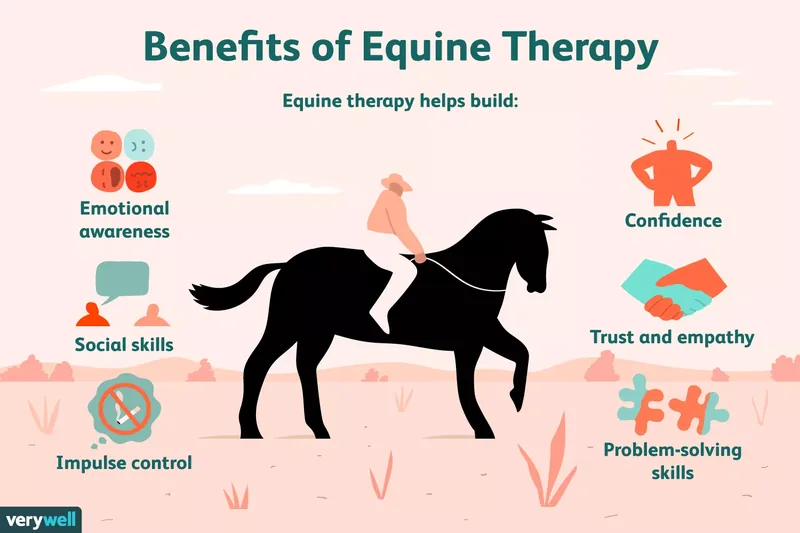Personal Finance
Unlock Lifesaving Insights: Your Family Health Conversation Guide
Have you ever considered that a single conversation could save your life? It might sound dramatic, but understanding your family's health history is a powerful step towards a longer, healthier future. Genetics play a significant role in our predisposition to various diseases, from heart conditions to certain cancers. By simply talking to your relatives, you gain invaluable insights that empower you to make proactive health choices, potentially altering your health trajectory and even extending your lifespan. This knowledge isn't about fear; it's about empowerment and taking control of your well-being in 2025 and beyond.
Why is Knowing My Family Health History So Important?
Understanding your family's medical past is like having a personalized health blueprint. It reveals potential genetic risk factors that might otherwise remain hidden. For instance, if close relatives experienced heart attacks or strokes at a young age, you might carry a similar predisposition.
I recall the chilling realization of my own family's history. My grandfather passed in his 50s from a heart attack, and my grandmother, at 62, from a stroke. Later, my uncle succumbed to a heart attack at just 44. These premature deaths, all linked to cardiovascular disease, instilled a profound fear—not just for my mother, but for my own future. This fear prompted a doctor's visit, where I discovered elevated cholesterol, further solidifying the urgency of understanding my genetic legacy.
Scientific literature consistently demonstrates the role of genetics in conditions like cardiovascular disease, type 2 diabetes, and certain cancers (Harvard, 2024). Approximately 75% of individuals carry polygenic markers associated with a higher-than-average risk for these conditions. This isn't a death sentence; it's a call to action. Knowing your family health history allows for targeted screenings and lifestyle adjustments tailored to your unique risk profile.
Can Lifestyle Really Overcome Genetic Predispositions?
Absolutely. While genetics load the gun, lifestyle pulls the trigger. This is a crucial distinction many people miss. The good news is that robust scientific evidence confirms the profound impact of healthy lifestyle habits on disease prevention, even in the face of genetic predispositions (Mayo Clinic, 2024). Regular exercise, a balanced diet, and effective stress management can dramatically lower your risk for cardiovascular disease and various cancers.
After my uncle's death, the fear transformed into motivation. I began running, literally feeling like I was running for my life. That initial burn in my lungs and ache in my legs became a symbol of proactive change. Discovering additional cardiovascular risk factors on my father's side of the family only reinforced this commitment. This personal journey highlights how awareness of genetic risks can be a powerful catalyst for adopting healthier behaviors, demonstrating that a conversation could save your life by inspiring action.
Many mistakenly believe that a genetic predisposition seals their fate, rendering preventive measures useless. A recent global survey by a major healthcare company found that over a third (35%) of adults hold this misconception. However, extensive research proves otherwise. Preventive screenings, regular check-ups, and healthy habits significantly reduce disease risk and improve survival rates if a condition does arise (NIH, 2024). This understanding forms the backbone of modern personalized medicine.
How Can a Family Health Conversation Improve My Medical Care?
Sharing your family health history with your doctor is paramount to receiving personalized, effective healthcare. Medical professionals rely on this information to guide your care, determining appropriate screenings, tests, and preventive strategies.
For example, if your family has a history of early-onset colon cancer, your doctor might recommend starting colonoscopies earlier than the general guideline. Stanford researchers emphasize that this detailed history allows doctors to identify patterns and proactively address potential issues before they become critical. In fact, a healthcare survey revealed that 79% of professionals believe more lives could be saved if patients had better knowledge of their family history. This vital conversation could save your life by equipping your doctor with the information needed for optimal care.
Consider these four transformative benefits of knowing your family’s health history:
- Fear subsides when you take action. Studies show that individuals aware of elevated disease risk are more motivated to engage in healthy lifestyle practices (Lee & Jin, 2023). Knowledge replaces anxiety with a sense of control and peace of mind.
- It empowers you to take proactive steps. Armed with this information, you can ask your doctor targeted questions like, “What specific steps can I take to reduce my risk?”
- You receive superior, personalized healthcare. Understanding a patient’s family health history is critical for delivering tailored care, as 68% of healthcare professionals confirm.
- You can help your children adopt healthy lifestyles. This knowledge isn't just for you; it provides an opportunity to instill healthy habits in the next generation, potentially saving their lives too.
What Are the Best Ways to Start a Family Health Discussion?
Initiating a family health discussion might seem daunting, especially if health topics aren't commonly discussed. However, the potential benefits far outweigh any initial discomfort. Here are practical steps to make this crucial conversation save life moments possible:
- Start with a clear purpose. Call your parents or grandparents and explain you're creating a family health document to share. Ask about any health conditions they've experienced or know about in other relatives.
- Ease into the topic if directness feels uncomfortable. Casually steer a conversation towards health, perhaps by sharing some of your own health concerns first. This can open the door for others to share.
- Expand your circle. If one family member is reluctant, reach out to aunts, uncles, siblings, and cousins. The more perspectives you gather, the clearer your family's health risk picture becomes.
New Example: A friend, Sarah, initially hesitated to ask her mother about her side of the family, fearing bad news. However, after hearing about a colleague who discovered a treatable genetic condition thanks to a family discussion, Sarah found the courage. She learned her grandmother had battled early-onset glaucoma, prompting Sarah to schedule a preventive eye exam years earlier than she would have otherwise. This simple conversation could save her life from potential blindness.
Be sure to document key details: the specific health conditions, which family member had them, their age at diagnosis, and any treatments that proved effective or ineffective. This comprehensive record is an invaluable tool for your next doctor's visit, enabling truly personalized care.
I am now 52, still running, and happily maintaining healthy cholesterol levels. My mother, who consistently achieves 10K steps daily, recently celebrated her 80th birthday. These outcomes are a testament to the power of knowledge and proactive health choices—choices that began with a crucial family conversation.
References
- Bupa Group. (2025, October 15). Genetic health risks overlooked as one in seven never discuss family health history. (Bupa, 2025)
- Wu, J., et al. (2024). Lifestyle behaviors and risk of cardiovascular disease and prognosis among individuals with cardiovascular disease: a systematic review and meta-analysis of 71 prospective cohort studies. The international journal of behavioral nutrition and physical activity, 21(1), 42. (Mayo Clinic, 2024)
- Kruk, J., et al. (2025). Physical Activity and Cancer Incidence and Mortality: Current Evidence and Biological Mechanisms. Cancers, 17(9), 1410. (Harvard, 2024)
- National Cancer Institute. (2024, December 5). In five cancer types, prevention and screening have been major contributors to saving lives. (NIH, 2024)
- Lee, S., & Jin, Y. (2023). Associations among risk perception, health efficacy, and health behaviors toward cardiovascular disease prevention. Frontiers in Cardiovascular Medicine, 10, 1201789. (Lee & Jin, 2023)










